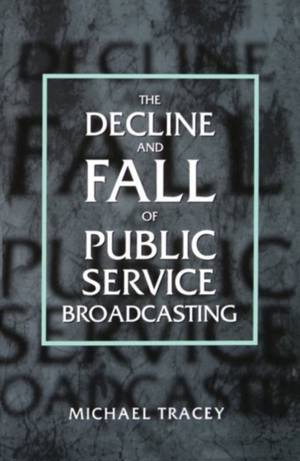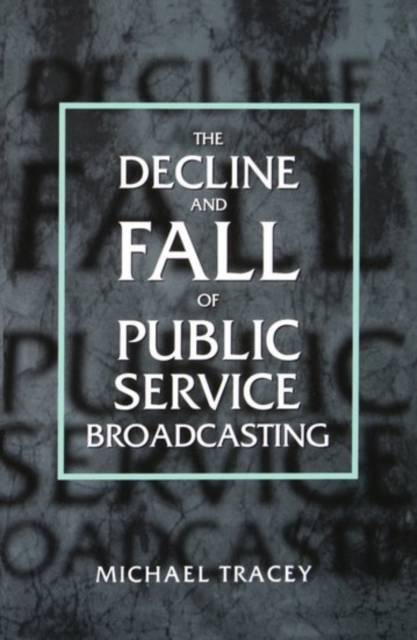
Bedankt voor het vertrouwen het afgelopen jaar! Om jou te bedanken bieden we GRATIS verzending (in België) aan op alles gedurende de hele maand januari.
- Afhalen na 1 uur in een winkel met voorraad
- In januari gratis thuislevering in België
- Ruim aanbod met 7 miljoen producten
Bedankt voor het vertrouwen het afgelopen jaar! Om jou te bedanken bieden we GRATIS verzending (in België) aan op alles gedurende de hele maand januari.
- Afhalen na 1 uur in een winkel met voorraad
- In januari gratis thuislevering in België
- Ruim aanbod met 7 miljoen producten
Zoeken
Omschrijving
Public broadcasting is arguably the single most important social, cultural, and journalistic institution of the 20th century. In the past 15 years it has been assaulted politically, ideologically, and technologically. Today it is everywhere in retreat. This book considers the very idea of public service broadcasting, studying in detail the many assaults made upon it--with specific emphasis on developments and events in the UK, Japan, Europe, and the US. Tracey argues that public service broadcasting has been a vital and democratically significant institution in the past, and that it is now experiencing a terminal decline brought about by great changes in political, economic, and technological circumstances. Based on years of research, and on extensive contact with leading public broadcasters around the world, this book examines the ways in which, for the most part, public service broadcasting has vainly (and often ineffectually) struggled to survive in recent years.
Specificaties
Betrokkenen
- Auteur(s):
- Uitgeverij:
Inhoud
- Aantal bladzijden:
- 316
- Taal:
- Engels
- Reeks:
Eigenschappen
- Productcode (EAN):
- 9780198159247
- Verschijningsdatum:
- 5/03/1998
- Uitvoering:
- Paperback
- Formaat:
- Trade paperback (VS)
- Afmetingen:
- 157 mm x 233 mm
- Gewicht:
- 526 g

Alleen bij Standaard Boekhandel
+ 219 punten op je klantenkaart van Standaard Boekhandel
Beoordelingen
We publiceren alleen reviews die voldoen aan de voorwaarden voor reviews. Bekijk onze voorwaarden voor reviews.









